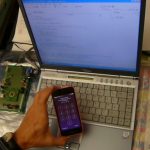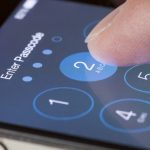FBI granted the right to hack the computers of any suspect running Tor, VPNs or anonymizing software

Starting today, the FBI will now have a much easier time hacking just about any computer it wants to. The use of VPNs and other anonymizing software such as Tor meant that it was previously difficult for the Feds to apply for the necessary warrant within the relevant jurisdiction.
Now the location doesn't matter. A change to Rule 41 of the Federal Rules of Criminal Procedure means that investigators can obtain a search warrant regardless of location. The expansion of FBI hacking powers comes after a failed Senate bid to block the changes to Rule 41, and there are fears that it is power that could be abused by Trump.
Hillary Clinton blames FBI email investigation for her election loss to Donald Trump

Donald Trump said in no uncertain terms that he believed the US election was rigged. If he had lost, he would have almost certainly contested the result, making claims of vote influencing, media bias and who knows what else.
But the reality is that Trump won, and this means that it is Hillary Clinton who is left pointing the finger of blame for losing. Unsurprisingly, it's the FBI that finds itself named as being responsible, with Clinton referring to letters from FBI director James Comey relating to the investigation into her use of a personal email server as the reason for her loss.
FBI says Clinton emails show no signs of wrong-doing, but Trump has his doubts

Just over a week after the FBI announced it was re-opening the investigation into Hillary Clinton's emails, bureau director James Comey has announced that the previous investigatory conclusion of no wrong-doing remains.
Looking at a new batch of emails that were discovered during a separate investigation has "not changed our conclusion", he said. But while the Clinton camp welcomed the news, Donald Trump was more suspicious. "You can’t review 650,000 emails in eight days," he said.
The iPhone's passcode security can be beaten for just $100

Remember how Apple and the FBI clashed regarding the unlocking of San Bernadino shooter Syed Rizwan Farook's iPhone 5c some six months ago?
Apple refused to help the FBI find a way to unlock the iPhone as it believed doing so would, in Tim Cook’s words, "undermine the very freedoms and liberty our government is meant to protect". After lots of posturing from both sides, the FBI eventually found a way to crack the encryption without Apple’s help, although at a reported cost of in excess of $1 million. But now a Cambridge computer scientist says he has managed to crack the iPhone 5c’s passcode security for a lot less than that -- just $100, in fact.
Anonymous takes the FBI to task for corruption

Hacktivist collective Anonymous targets all sorts of people and organizations. Past and on-going operations have focused on Islamic State, white supremacists, the Church of Scientology, Ku Klux Klan, and Donald Trump.
Whatever your view on Anonymous, the group certainly likes to pick fights with high profile foes. The latest organization to have the Anonymous spotlight shone on its affairs is the Federal Bureau of Investigation.
A win for privacy: Senate blocks FBI from gaining warrantless access to browsing histories

A Senate amendment brought forward by John McCain that would have given the FBI the right to browse suspects' phone and internet records without a warrant has been narrowly defeated.
The vote very nearly went the other way -- there were just two votes in it when the counting was over. McCain had hoped that pushing the amendment as a counter-terrorism tool (particularly against "non-U.S. citizen 'lone wolf' attackers") would be enough to get the required 60 votes. But it seems that the Orlando shooting that McCain cited as an incentive for the changes was not enough to convince others.
Mozilla asks the FBI for details of Tor vulnerability that could also affect Firefox

Mozilla is fighting to force the FBI to disclose details of a vulnerability in the Tor web browser. The company fears that the same vulnerability could affect Firefox, and wants to have a chance to patch it before details are made public.
The vulnerability was exploited by FBI agents to home in on a teacher who was accessing child pornography. Using a "network investigative technique", the FBI was able to identify the man from Vancouver, but Mozilla is concerned that it could also be used by bad actors.
LAPD hacks iPhone 5s, but how?

The iPhone 5c belonging to San Bernadino shooter Syed Rizwan Farook is not the only iPhone that the US authorities have managed to hack this year. According to a report by Los Angeles Times, the Los Angeles Police Department has "bypassed the security features" of an iPhone 5s.
The iPhone 5s in question was used by April Jace, the wife of The Shield actor Michael Jace, who is facing murder charges, being accused of killing his partner on May 19, 2014. And, according to court documents reviewed by the publication, on March 18 the LAPD claimed to have found a "forensic cellphone expert" who could hack the device, which is believed to hold important evidence in the trial.
It cost HOW MUCH to crack the San Bernardino iPhone?!

There are a lot of questions still to be answered about the San Bernardino iPhone that saw the FBI and Apple go head to head. After something of a battle, the FBI found someone to crack the iPhone. But who exactly did it? How did they do it? Will Apple be told how to do it in private? But one question that has also been lurking in the background is just how much it cost to hack into a single iPhone.
Now we know the answer. Not precisely, but we have a pretty good idea. Perhaps unsurprisingly, cracking the iPhone at the center of one of the most interesting technology cases in recent history, was not cheap. In a somewhat roundabout way, FBI Director James Comey revealed that the cost was more than $1.34 million.
The FBI vs Apple fight is not over

The recent furore between Apple and the FBI over access to the San Bernadino shooter’s iPhone brought privacy debates firmly into the public eye. Despite tech giants, politicians and privacy campaigners explaining the potential ramifications of the case, many people remained on the fence.
A recent survey by the Pew Research Centre found that the majority of Americans sided with the FBI and believe that Apple should have complied with its demands. I find this deeply concerning because it shows how easily our collective privacy could be eroded in the name of national security, and also how little most people seem to understand the encryption technologies which protect us all.
FBI issues warning over MSIL/Samas ransomware

The FBI has began seeking the assistance of companies in the US to streamline its investigation on an increasing ransomware threat in the country.
The FBI is looking into a strain of ransomware called MSIL/Samas, which has been encrypting data across entire networks rather than single computers, Reuters reports. The ransomware infects machines before encrypting data and asking for money in return of the access.
Tech industry sides with Apple in San Bernadino iPhone case

The tech industry is on Apple’s side when it comes to the dispute with FBI over the unlocking of the San Bernardino shooter’s iPhone.
This was, once again, confirmed through a research done by security vendor AlienVault. According to the company’s survey, which polled 1,500 IT security professionals, 33 percent support FBI, while the rest think unlocking the phone will do nothing but weaken overall product security.
FBI may be able to access San Bernadino iPhone without Apple's help

Unless you've been chilling under a rock, news of Apple's fight with the FBI has been everywhere. Even though the iPhone-maker is clearly on the correct side of the encryption-cracking battle, some have sided with the agency. I understand that people want to access the terrorist's phone as a way to thwart future attacks, but when we give up our rights and privacy, the terrorists win.
Today, using the excuse that it might have found a third party solution to cracking the terrorist's phone, the FBI has requested to cancel tomorrow's court appearance. A judge has officially granted the agency's request, postponing the court meeting until April 5.
Third-party encryption renders iPhone backdoor useless

Let’s assume for a minute that the FBI got its way. It coerces Apple into disabling the self-destruct function on the San Bernardino terrorist’s iPhone, allowing it to brute force the password. Effectively, the FBI and Apple create a backdoor that theoretically works the same across all iPhones. Police even uses the same tactic on the dozens of other iPhones that are currently involved in active investigations. People across the world sacrifice their privacy, while the police has a new tool to fight terrorists.
Except they don’t, really. Sure, iMessage and other iCloud services could be decrypted without a password, but what Apple critics often fail to realize is the abundance of third-party encryption tools widely available. Free, open-source alternatives exist to encrypt chats, phone calls, files, and even entire hard drives. That pesky self-destruct function the FBI is so eager to remove? Alternatives for that exist as well, and they are all easily accessible with nothing more than a Google search. By removing the default encryption built in iPhones, the FBI isn’t stopping terrorists. It’s merely inconveniencing them.
Privacy and security killer: Obama supports backdoors to bypass encryption

The on-going battle between Apple and the FBI has brought encryption and security to the fore once again. After remaining silent on the subject for some time, President Obama -- speaking at SXSW -- said that he was opposed the idea of encryption mechanism that are so strong it prevents governmental access.
"If technologically it is possible to make an impenetrable device or system where the encryption is so strong that there is no key, there's no door at all, then how do we apprehend the child pornographer, how do we solve or disrupt a terrorist plot?" he wondered aloud, his almost rhetorical question playing neatly on two of America's biggest fears. He suggested that security keys should be made available to third parties, saying "you cannot take an absolutist view" when it comes to balancing security and privacy. But Obama has a solution: backdoors.
Recent Headlines
Most Commented Stories
BetaNews, your source for breaking tech news, reviews, and in-depth reporting since 1998.
Regional iGaming Content
© 1998-2025 BetaNews, Inc. All Rights Reserved. About Us - Privacy Policy - Cookie Policy - Sitemap.